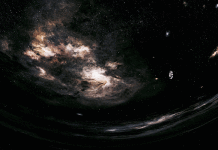About the Philosophical Society of Washington
Purpose:
The Philosophical Society of Washington invites speakers from the large, diverse scientific community in the Washington area to present results not yet in public awareness. The society attracts members who would like to be aware of the frontiers of diverse intellectual disciplines.
Meetings, which are generally held every other Friday from October to May at the Cosmos Club, are free to the public. Following the scheduled program, members have the opportunity to present and discuss informal communications. Refreshments and conversations are served following adjournment of meetings.
History:
The Philosophical Society grew out of meetings that were held Saturday afternoons in the middle of the Nineteenth century in the home of Joseph Henry, an early researcher in magnetism and the discoverer of electromagnetic self-induction. It was an association of individuals who were interested in science, but in Joseph Henry’s words, would discuss “All subjects of interest to intelligent men.” Now, of course, the society includes women as well.
From these informal meeting, The Philosophical Society of Washington was founded on March 13, 1871. The aims of the Society are the promotion of science, the advancement of learning, and the free exchange of views among its members on scientific subjects. During the first years of the Society the leading themes of the communications were astronomy, geography, physics, and biology. Geology, meteorology, and anthropology gained the floor of the Society during these beginnings owing to the rapid growth of the U.S. Geological Survey and the Weather Bureau (now part of the U.S. National Oceanic and Atmospheric Administration), and the Bureau of Ethnology (of the Smithsonian Institution).
The nature of the meetings changed when more specialized scientific societies sprang from the Philosophical Society. The Anthropological Society was organized in 1879, the Biological Society in 1880, and the Chemical Society in 1884. The Philosophical Society became more closely identified with the physical and mathematical sciences, geophysics, and biophysics, although it has never taken the character of a specialized society.
From 1878 to 1887 meetings were held in the library of the Surgeon’s General Office in Ford’s Theater (converted into Government office space some time after President Lincoln was assassinated there). Since March 26, 1887, the date of the 300thmeeting of the Society, the regular meeting place has been the assembly hall of the Cosmos Club, now called the John Wesley Powell auditorium.
In 1931 the society inaugurated the annual Joseph Henry Lectures in honor of its first president.
Up to about 1960, the society was the principal forum for local scientists to present their research. However, the advent of jet travel made it possible for scientists everywhere to present their results at national and international meetings, rather than at local scientific societies. Therefore, the society has refocused itself on providing a forum for the presentation and discussion of a variety of current scientific subjects before an audience of multi-disciplinary scientists and science-interested lay persons.
Today:
Today, the Washington Philosophical Society continues the traditions set by Joseph Henry in 1871 and continues to discuss “all subjects of interest to intelligent men” and women. Membership in the society is open to all persons who are interested in the aims of the society. The application for membership is a simple form requesting professional and educational information. Election to membership is by the General Committee.
Members of the society are entitled to subscribe at a reduced rate to the journals published by the American Institute of Physics with which the society is affiliated. Annual subscriptions to Physics Today can be obtained through the society at a special rate.







